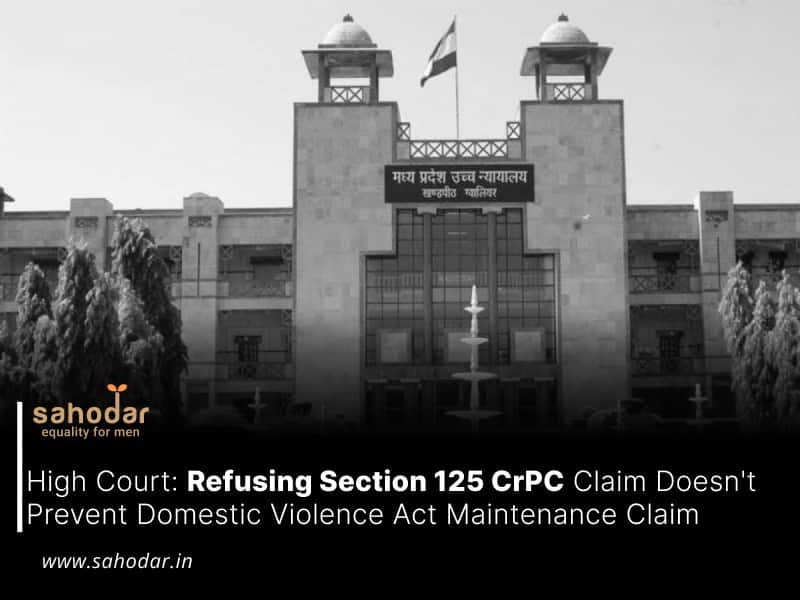The Madhya Pradesh High Court has made it clear that the decisions of a family court regarding maintenance under Section 125 CrPC do not hold legal sway in cases under the Prevention of Women From Domestic Violence Act, 2005. Justice Prem Narayan Singh, in a single-judge bench, emphasized that a maintenance application under one statute does not preclude seeking maintenance under another statute.
“…if, in proceeding under Section 125 of Cr.P.C., the application of wife seeking maintenance is rejected by the Family Court, such wife would not be precluded from claiming maintenance or other monetary remedy under the 12 provisions of the D.V. Act. The reasons assigned by the learned Family Court in rejecting the application under Section 125 of Cr.P.C. have no relevancy to the cases pending before the Courts dealing with the D.V. Act”, the bench sitting at Indore noted while dismissing the revision petition filed by the husband and his family against the interim maintenance of Rs 5,000/- awarded under a Section 23 application made under Domestic Violence Act.
In the specific case under consideration, the court expressed the view that the family court’s determinations regarding the absence of adequate reasons for living separately from one’s spouse do not carry any weight in applications made under the Domestic Violence Act. The court firmly asserted that a judgment made under Section 125 CrPC, which follows a swift procedure, does not preclude the option of seeking relief under the Domestic Violence Act. The court’s reasoning was further supported by the precedent set in the case of Nagendrappa Natikar v. Neelamma, (2014) 14 SC 452. Furthermore, the court made a clear distinction from the case of Bhagat Ram v. State of Rajasthan, 1972 AIR (SC) 1502, as outlined below:
“Virtually, it (Bhagat Ram) was a criminal case which pertained to a criminal trial, wherein it is held that if an accused was acquitted or convicted in an earlier trial, he cannot be prosecuted for the same offence. However, since the proceeding of instant case related to maintenance in D.V. Act, it cannot be influenced by the findings of any other Court, which has been given in a finding applying summary procedure…”
The High Court also made a clear distinction from the Rajasthan High Court’s decision in Gyan Chand v. Smt. Rekha (2010), which had been heavily relied upon by the revision petitioners. In the Gyan Chand case, it was determined that the findings from proceedings under the Domestic Violence Act held relevance in subsequent proceedings before the Family Court. Justice Prem Narayan Singh highlighted that the current case presents a reversal of the situation seen in Gyan Chand, as the petitioner is now seeking to apply the family court’s findings to the Domestic Violence Act proceedings. The court emphasized that this cannot be done since proceedings under Section 125 CrPC follow a summary nature.
In reference to Rajnesh v. Neha & Another, 2021 (2) SCC 324, the court also inferred that even if a court awards maintenance under one statute, it does not preclude the claimant from seeking maintenance under a different statute.
Background
Previously, the Judicial First Class Magistrate in Indore had granted the wife’s application under Section 23 of the Domestic Violence Act and ordered the husband to pay Rs 5000 as interim maintenance. This same decision was upheld by the appellate court and subsequently challenged by the revision petition. While contesting these orders, the revision petitioners argued that the wife’s previous application under Section 125 CrPC had been dismissed by the family court. According to the petitioners, the family court’s dismissal of the maintenance application was based on the finding that the petitioners had not prevented the wife from returning to her marital home, and she had chosen to live separately from her husband of her own accord. The petitioners believed that this family court finding could not be re-examined by the court with authority under the Domestic Violence Act.

